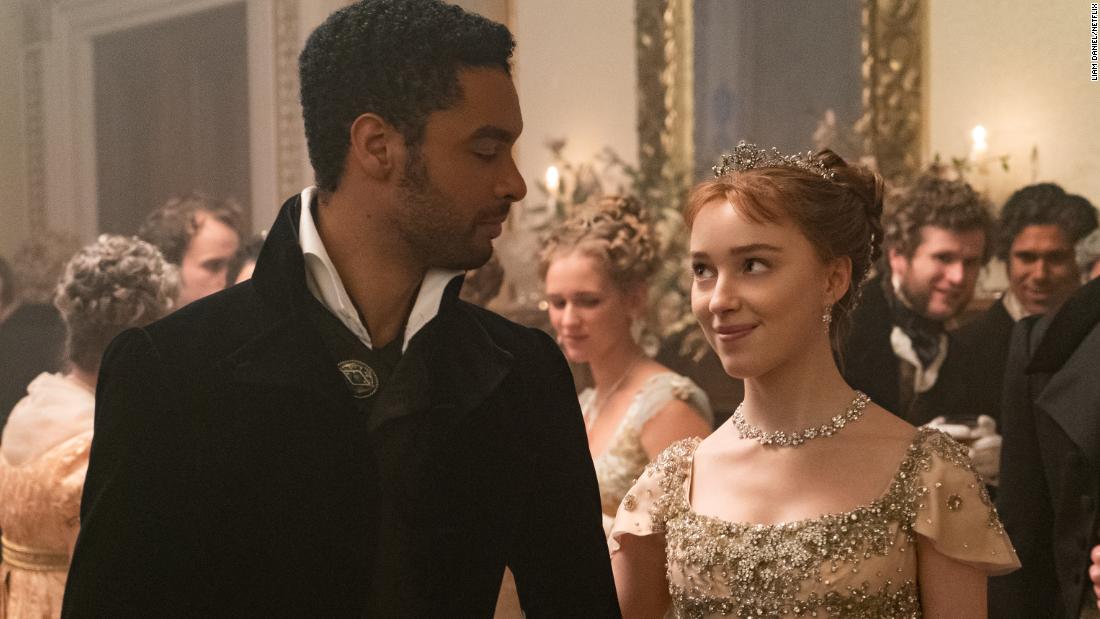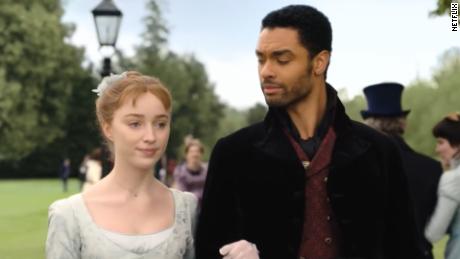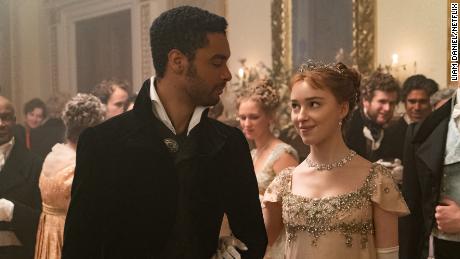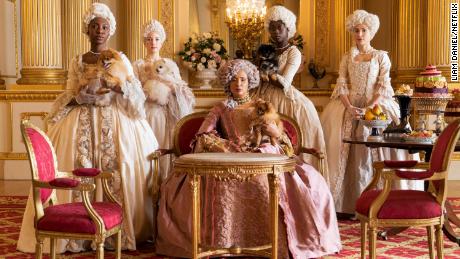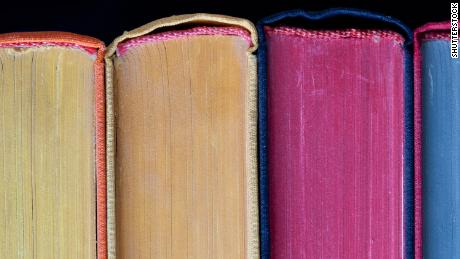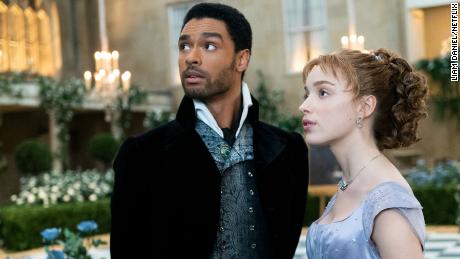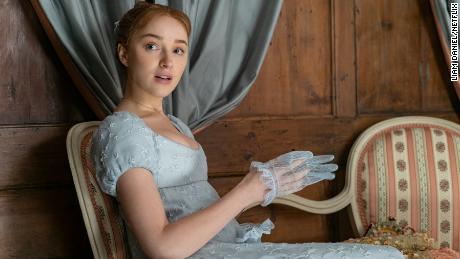The show has also been a big boon for romance novel lovers.
But what it will change, and who will stand to benefit, is a story that’s yet to be written.
Uncertain times have turned everyone into a romantic
“Love, sex, and relationships are universally compelling themes,” Dare says.
They’re also profitable ones. A spokeswoman from Avon, the imprint that publishes the “Bridgerton” novels, told CNN sales of the original eight “Bridgerton” books “have increased exponentially since the premiere of the show.”
It’s no surprise that such ultra-romantic, ultra-sensual stuff is topping bestseller lists and breaking streaming records. In fact, it’s just business as usual.
“The past year has been so difficult for everyone. Collectively, we needed a mass infusion of joy,” Dare says. “If the world can agree on nothing else, at least 63 million households can celebrate the Duke of Hastings’ perfectly arched eyebrow.”
“Bridgerton” could woo new romance readers
Despite being a thriving and evolving genre, outsiders often view romance novels with disdain. Every time a series like “Bridgerton” gains a cultural foothold, some of that stigma falls away. The effect can be a win-win, attracting more readers to the romance fold, and emboldening longtime fans, who may have hid their passion, to share more about the genre they love.
Why, exactly, romance writers and readers continue to contend with these assumptions is a thorny question.
“Sexism,” Tessa Dare says, simply. “Society is primed to view anything produced by women for women as lesser, and there’s always been an assumption that romance is frivolous, poorly written, and holds little appeal for men. Bridgerton’s success is proving all those assumptions false.”
That kind of value can’t be tagged with a dollar sign, and when social media is alight with people joking and sharing their saucy romance opinions, it’s not just boosting a bottom line. It’s revealing the genre’s true impact, and inviting others to bask in the softly-lit glow.
New eyes on romance puts inclusivity in the spotlight
So while “Bridgerton,” the TV series, provides an inclusive experience to its fans, that level of representation doesn’t carry over into the romance world as it stands. While there are sparks of new interest in the industry, writers are hopeful that the show’s success will prompt readers to explore a wider range of romance stories.
“We welcome new readers via ‘Bridgerton’ with open arms,” Suliekha Snyder says. “But the sticking point with the ‘rising tide lifts all boats’ philosophy is that sometimes it only lifts certain boats.”
“Will these new people only gravitate toward white Regency-era romance? Or will opening a Julia Quinn book and realizing the Duke is actually white make them seek out more diverse and inclusive books, thus widening the net?”
When Snyder, who is South Asian, got into romance writing, she noticed a lot of books in the genre fetishized and othered South Asian people. That drove her to write stories with characters of South Asian heritage.
Snyder cautions against viewing this level of “diversity” in publishing as some sort of option, or a way to fill a special bookshelf at the store. It is, she points out, simply reality.
“Diversity and inclusivity isn’t just an educational tool. It’s our lives. It’s how we love,” she says. “And that’s part of the struggle we’ve had over the past several decades. Just having to remind people that [authors of color] exist and are real and that our books have just as much mass appeal as a white author’s.”
Speaking of mass appeal, “Bridgerton” the TV show has also raised tantalizing questions about the popularity of inclusive media.
“I don’t think of it as whether the show helps push the diversity conversation in romance forward,” says author Alyssa Cole. “But whether it wasn’t the other way around”
In short, it has been a common assumption that stories like these don’t sell.
But, Cole posits, the truth laid out by Bridgerton’s success, and the future it may invite, are more promising.
“At this point we’ve seen multiple romance adaptations with Black characters and characters of color added—would these shows have been as successful without a diverse cast?” she asks. “And if diversity is integral to an adaptation’s success, why not adapt more books from authors of color?”
In romance, everyone deserves a happy ending
If there really is going to be a “Bridgerton effect” in the romance industry, it’s clear it has to be one that boosts writers and readers of all backgrounds. After all, the unifying theme of romance — whether you’re into werewolves, cybersex, Scots in kilts or women in stays — is that everyone deserves a happy ending.
“I think that’s where the importance of inclusion is, having this space to safely navigate our identities while knowing it will end in a happily-ever-after,” Snyder says. “Queer readers, readers of color … when we’re reflected in the pages, we get to see our happily-ever-afters normalized. And that’s radical. It shouldn’t be. It should be commonplace. But we’re not there yet, unfortunately.”
These are the things to remember the next time someone dismisses romance as frivolous. Yes, there’s sex. Yes, there is fun and escapism. And those things warrant no apologies.
But romance means more to people than that.
“It’s very feminist. In a lot of romances, the woman is saving themselves. It’s so pro consent — it’s our fantasy, that we want to be treated with respect,” Roni Loren says.
Cole says another big draw is trust. “Characters are often guarded due to past trauma. Part of their story is learning to trust someone, and that trust not being a mistake,” she says.
“One of the greatest fantasies is that you can show yourself — all of yourself, including the bad stuff — to a partner or friend, and trust that they will still love you. In a romance, that trust is always rewarded at the end.”
When readers open a romance novel, they trust that something of themselves is going to be reflected in those pages, no matter who they are, who they love, or how they live.
And if a very sexy, very profitable Netflix show can pave the way for more of these stories to be told, then bring on the love.

